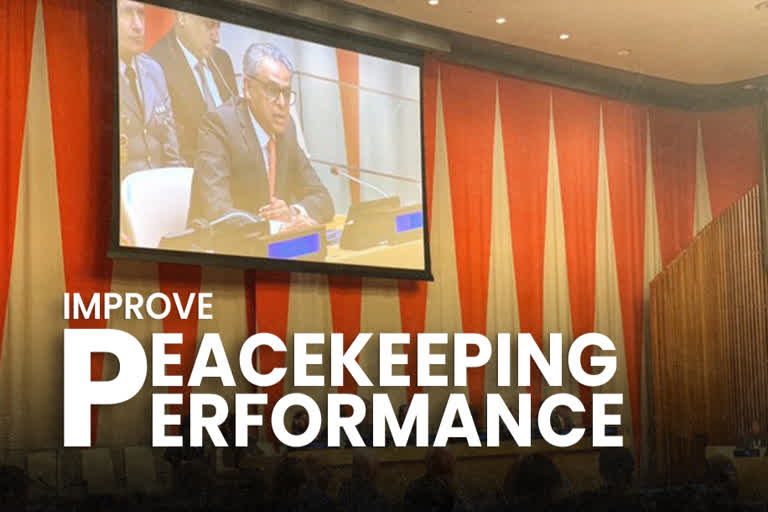New York: India on Friday underscored the need for making the selection of United Nations peacekeepers more stringent and suggested a series of measures in this regard to make the process more effective.
Speaking at a high-level event which deliberated on improving peacekeeping performance, India's permanent representative to UN Syed Akbaruddin said that while India believes that broad participation in peacekeeping is important to enhance global solidarity, there can be no substitute for the professional competence of those engaged in all aspects of this global enterprise.
In his address, Akbaruddin highlighted the need for minimum operational standards as a benchmark that all contingents should meet when deployed.
Read More: US calls for bringing 26/11 perpetrators to justice
"The guidelines require that the Peacekeeping Capability Readiness System (PCRS) should be the sole mechanism for the selection of a military or police unit for deployment. The four distinct levels -- Level 1, Level 2, Level 3 and Rapid Deployment Level -- are meant to indicate a natural progression of readiness for deployment. Diversity in terms of deployment needs is understandable, and some variations are inevitable," Akbaruddin said.
"However, choices and selections need to be made from within the same spectrum of options. Those not part of the PCRS is best avoided. Similarly, preference of units from Level 1 of the PCRS for deployment when units at Level 3 and RDL are available, undermines due diligence of the states involved in updating their contributions to higher levels," he added.
India was one of the sponsors at the event along with the US, Portugal, Senegal, Uruguay, and Vietnam.
Read Also: Indo-US discuss energy cooperation
